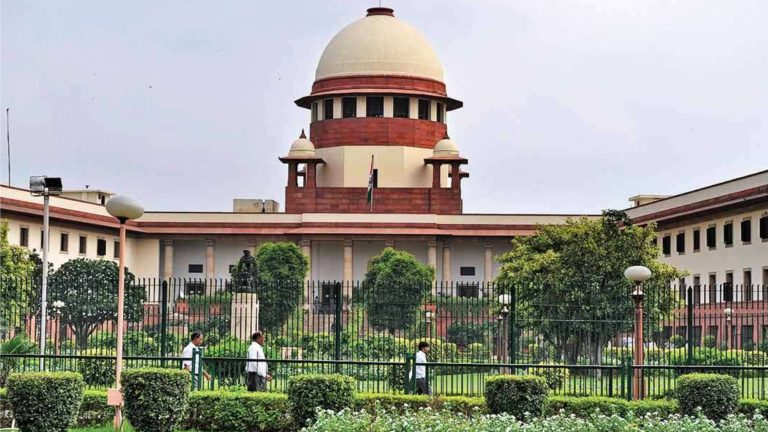The Supreme Court in the case of Dushyant Janbandhu vs. M/s Hyundai Autoever India Pvt. Ltd imposed a cost of Rs 5 Lakh on a company for filing a petition under Section 11(6) of the Arbitration & Conciliation Act when disputes relating to non-payment of wages & legality of termination which were anyway pending before the statutory authorities.
The Apex Court clarified that the disputes pending before the statutory authorities, related to non-payment of wages and legality and propriety of termination which are non-arbitrable. Questioning the appointment of an arbitrator by the High Court of Madras under Section 11(6) of the Arbitration and Conciliation Act, 19961, the appellant filed the appeal before the Apex Court on the ground that the dispute with the respondent-employer, M/S Hyundai AutoEver India Pvt. Ltd. was governed by the statute under the Payment of Wages Act, 1936 and the Industrial Disputes Act, 1947.
The Division Bench comprising Justice Pamidighantam Sri Narasimha & Justice Sandeep Mehta said, “ However, as the following narration of facts speaks for itself, we have found that the application under Section 11 of the Act is a clear abuse of the remedial process. We have therefore allowed the appeal and dismissed the Section 11(6) petition with cost.”
The appellant, in this case, was appointed as an Assistant Manager in 2019. Within a year, due to Covid-19 pandemic, the appellant was asked to work from home. However, the respondent called upon the appellant to resume physical attendance of office from August 2020. As the appellant refused to comply, a show cause notice was issued followed by an inquiry. The inquiry led to issuance of a charge memo for violating certain contractual clauses and these related to non-cooperation and absenteeism.
Also read – EPFO officer booked for amassing disproportionate assets
Ultimately, an order of termination was passed. However, there was no allegation whatsoever that the appellant violated clause 19 of the appointment order leading to the order of termination. During the pendency of disciplinary action, as the appellant was not paid his salary, he issued a legal notice for payment of wages and filed a petition under Section 15(2) of the PW Act. As a counterblast, the respondent issued a notice alleging that the disputes must be settled through arbitration and proceeded to unilaterally appoint an arbitrator. The arbitrator closed the arbitral proceedings. The respondent also moved an application under Section 8 seeking reference of the dispute to arbitration. The Authority under PW Act dismissed the said application. Questioning the order of termination, the appellant approached the Industrial Tribunal by filing a petition under Section 2(A) of the ID Act and the same is pending adjudication.
It is in this background that the appellant approached the Apex Court.
The disputes between the appellant and the respondent related to non-payment of wages and also the legality and validity of termination order. The Bench noticed that over and above these disputes, for the first time the respondent sought to give a new angle to the dispute by stating that the appellant had also violated the non-disclosure obligations under clause 19 of the appointment order. “The issue relating to violation of the non-disclosure obligation under clause 19 is only an afterthought. This was evidently not the ground when the respondent issued the show cause notice on 04.09.2020, nor was it a part of the inquiry report, the relevant portion of which we have extracted in the para 3 above. This is also not a part of the charge memo dated 25.11.2020”, it said.
It was further observed by the Bench that the legality of the order of termination is within the jurisdiction of Industrial Tribunal under Section 2(A) of the ID Act as the jurisdiction of the Industrial Court is also to the exclusion of the civil courts and is not arbitrable. As per the Bench, remedies under these statutes were invoked much prior to the filing of petition under Section 11(6) by the respondent. Reference was also made to the judgment in Vidya Drolia v. Durga Trading Corporation where the principle of subject-matter arbitrability is enunciated. “Having considered the factual background in which the Section 11(6) petition has been filed, we are of the opinion that it is an abuse of process. It was clearly intended to threaten the appellant for having approached the statutory authorities under the PW Act and the ID Act.”, it added. The Court also explained, “The Section 11(6) petition has two facets. The first relates to disputes that were anyway pending before the statutory authorities, and they related to non-payment of wages and legality and propriety of termination which are non-arbitrable. The second facet relates to the alleged violation of clause 19 relating to nondisclosure obligation, which was not raised in the show cause notice, inquiry report, chargesheet and termination order and as such is non-existent.” Thus, allowing the appeal & dismissing the petition under Section 11(6) filed by the respondent under the Arbitration and Conciliation Act, the Bench held, “The appellant will also be entitled to cost quantified at Rs. 5 lakhs payable within a period of 3 months from today.”
Source: verdictum
Stay connected with us on social media platforms for instant updates click here to join our LinkedIn, Twitter & Facebook



































